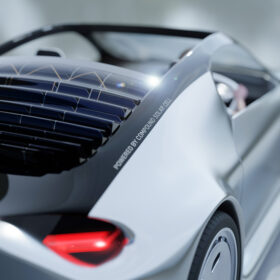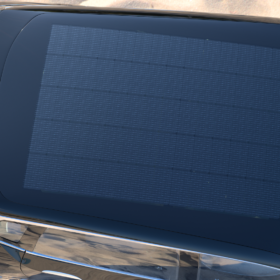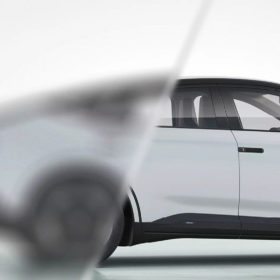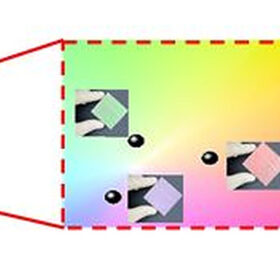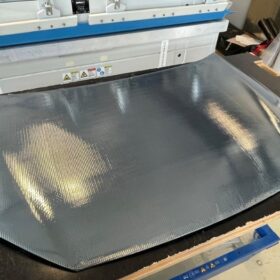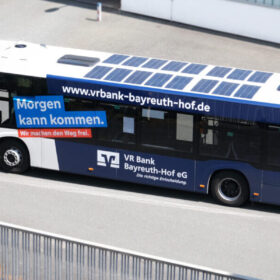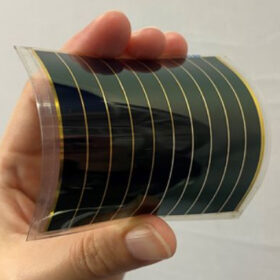Vehicle-integrated photovoltaic system for medical support
A spinoff of Germany’s Fraunhofer Gesellschaft has developed a compact vehicle-integrated PV system integrated with medical support equipment to provide off-grid, off-road mobile healthcare in rural communities. The PV modules with integrated energy management system supply all the electricity required for maintaining a cold chain for vaccines, medicines and samples.
Vehicle-integrated photovoltaics making the moves from niche to mainstream
A new report from the International Energy Agency’s Photovoltaic Power Systems Programme (IEA-PVPS) looks at success factors required to take vehicle integrated photovoltaics (VIPV) from niche to mainstream based on a survey of 110 experts in the topic of transport and PV.
AGC Automotive Europe unveils photovoltaic panoramic sunroof for passenger vehicles
The Belgian automotive company said system can integrate either TOPCon, HJT, or xBC solar cells. The VIPV unit features a glass-glass construction and it does not need a roller blind system.
Vehicle-integrated photovoltaics for electric ground transport
Canadian custom module manufacturer Capsolar developed a vehicle integrated PV system (VIPV) for an electric material towing application, reportedly enabling 30% to 40% range increase per battery charge.
Imec integrates silicon heterojunction solar cells into curved surfaces
Imec has successfully integrated silicon heterojunction PV cells into curved surfaces, resulting in a 6% efficiency increase compared to passivated emitter and rear contact (PERC) half cells. The cells are suitable for applications in vehicle-integrated and building-integrated PV (BIPV).
Urban shadowing on solar-powered vehicles
New research shows high potential for solar-powered vehicles across the world, providing between 11 km/day/kWp to 29 km/day/kWp of extended range in open areas, enabling significant levels of self-sufficiency.
New techique to color flexible thin-film BIPV, VIPV panels
Researchers in South Korea have developed a process to enable colored and flexible, thin film modules suitable for vehicle and building-integrated PV applications. It is reportedly a low-cost process that does not significantly impact power conversion efficiency.
Fraunhofer ISE integrates solar cells into car hood
Germany’s Fraunhofer Institute for Solar Energy (ISE) has advanced vehicle-integrated PV (VIPV) technology by installing solar cells directly onto a standard sheet-metal car hood. The researchers placed a 115 W prototype array on the hood of a Volkswagen with a specialized lamination process.
Sono Motors equips first bus with PV retrofit solution
Sono Motors has equipped its first bus with its PV retrofit solution, featuring 16 semi-flexible rooftop solar modules to feed 1.4 kW of output into the vehicle’s battery system.
Enecoat, Toyota develop perovskite solar cells for vehicle-integrated applications
Toyota says it will combine EneCoat’s perovskite solar cells and its own in-vehicle technologies for solar panels. Enecoat has developed a perovskite module conversion efficiency of 19.4%.

